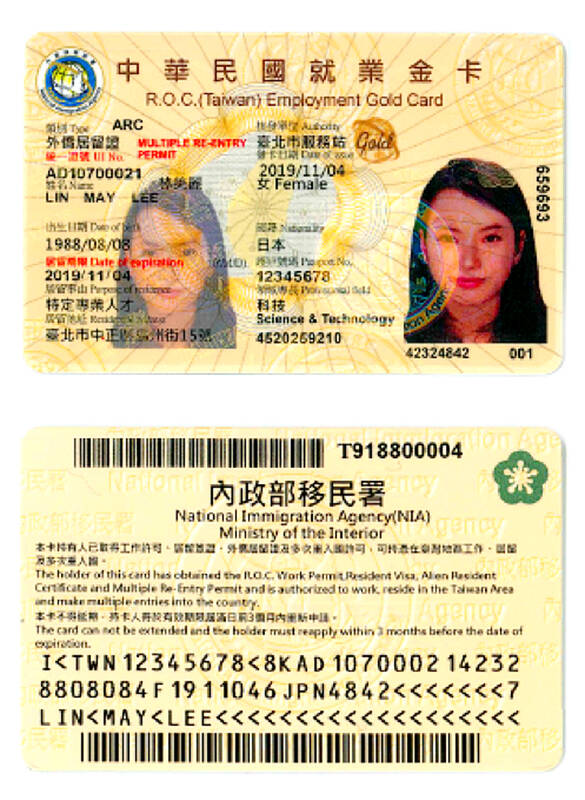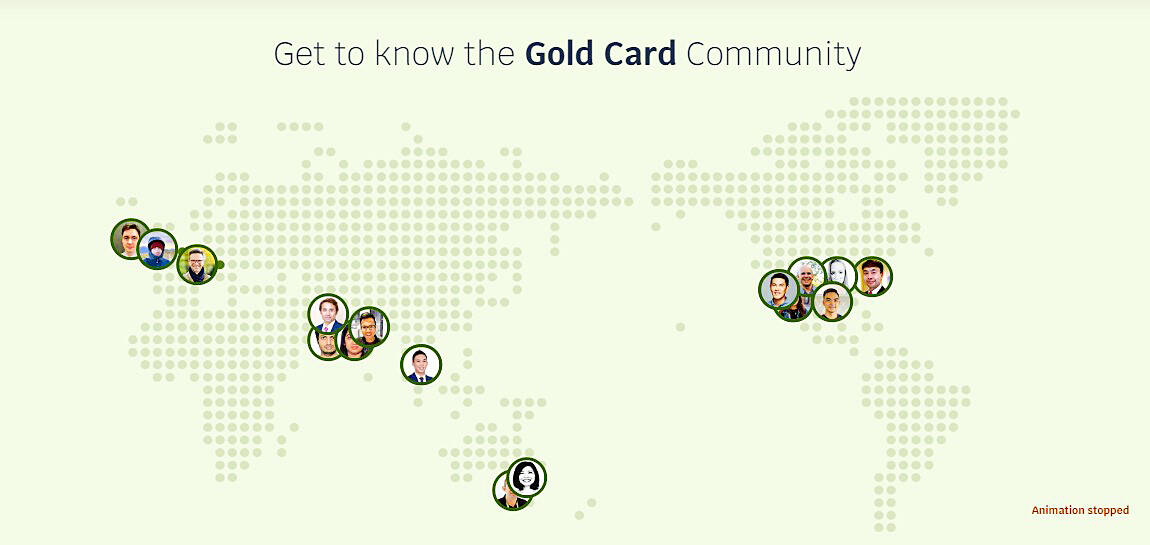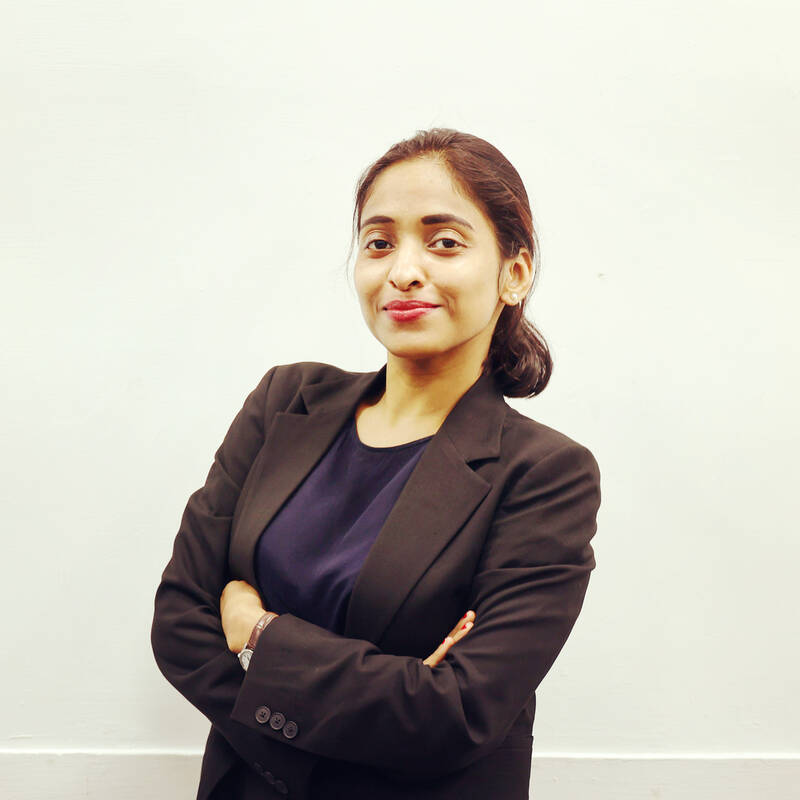The government expected language barriers to be the number one complaint for Gold Card holders in Taiwan when it sent out a survey last year. Instead, it was banking — not surprising for most foreign residents.
“Anything to do with banking is complicated, onerous and time consuming,” a respondent wrote. “If there was one thing I could change about Taiwan it would be for it to get on board with modern banking systems.”
Since 2018, Taiwan has handed out more than 6,500 Gold Cards to eligible foreigners as part of its global talent acquisition drive to combat the nation’s shrinking working-age population. The card is a combined resident visa and open work permit valid for three years, meaning that cardholders can live in Taiwan without being tied to an employer.

Photo courtesy of National Development Council
Most of the criticism the Gold Card program has faced is not with the card itself, but long standing problems with banking, housing, immigration and Taiwan’s working culture. But it wasn’t until October 2020 that the Taiwan Employment Gold Card Office was established to deal with these issues and to build and support a “Gold Card community.”
Tom Fifield, project manager at the Gold Card Office, says they’ve fixed most of the “easy” problems such as cardholders being unable to apply for an Ikea Family Card, but the big items will take time as they require the cooperation of other government agencies and businesses, as well as changes to the law.
“The issues we’re encountering now are structural and cultural issues that require a longer time frame,” Fifield says. “The great thing is the Gold Card program has been successful, so effectively we’re a wedge that can be used to break open some of these long standing issues.”

Screengrab: Taipei Times
These problems aside, Taiwan also has a long way to go to before it becomes a premier destination for global talent like Singapore. With the government hoping to attract 400,000 foreign professionals by 2032 — with the Gold Card responsible for 60,000 of these — time is ticking.
PROBLEM SOLVING
For the past year, the Gold Card Office has been holding meetings and seminars to educate the financial industry about the needs of foreign immigrants, and last year they worked with four state-owned banks to create a streamlined credit card process for Gold Card holders. They have also been advising banks to create programs designed for foreigners.

Photo courtesy of Sana Hashmi
“We also worked with the Ministry of Finance to confirm that there’s nothing in Taiwanese law that banks cannot accept proof of credit documents from overseas, that clear statement enabled banks to start doing that,” Fiflield says.
Gold Card Office director Jonathan Liao (廖炳坤) says it’s mostly about spreading awareness. When they invited 45 banks to a seminar, many didn’t know what a Gold Card was.
“It’s through these events that at least they’re now able to understand the needs of the foreign community and how it affects their business,” he says. “You can see that as this awareness grows in different sectors, they improve and open up their services for foreign residents.”

Photo: Han Cheung, Taipei Times
Housing has also been troublesome, as it’s difficult for foreign residents to secure a mortgage, and landlords are often discriminatory toward foreigners. General living conditions rank number four in the survey of problems experienced, and Taipei’s high housing costs are problematic for all residents.
Also deterrents for high-end professionals are Taiwan’s comparatively low salaries and generally oppressive work culture, but just 30 percent of Gold Card holders work for a local business. Only 25 percent of respondents chose Taiwan for work reasons; most came because they like Taiwan and the quality of life here, while others came for culture, safety, food and family.
The immigration system is also an obstacle. Gold Card holders can apply for the Alien Permanent Resident Card after the end of their term, but most foreigners — except for rare cases — never become citizens as they’re required to renounce their nationality.
In Sam Khan’s widely-circulated naturalization nightmare, “From Taiwan Gold Card to Taiwanese Citizenship,” he writes: “The Gold Card program isn’t the problem. It’s part of the solution. The core problem lies with Taiwan’s overall immigration system, which is restrictive, plagued with red tape and often subjects applicants to contradictory and redundant processes.”
WANTING TO STAY
Despite these barriers, a survey of 1,081 Gold Card holders shows that 60 percent are planning to stay in Taiwan for more than three years, or already consider Taiwan their home.
Canadian engineer James Hush is one of them. After failing for years to obtain a US Green Card and pursue the “American Dream,” he moved to Taiwan.
Hush was interviewing for a startup company during the COVID-19 pandemic when he learned that the CEO lived part-time in Taiwan. Hush had been learning Chinese online for a few years, and he had heard that Taiwan was relatively COVID free, and he asked if he could move there instead. He also heard that Taiwan had the best balance of living costs, safety and cleanliness in Asia.
The application process took about 20 minutes, and Hush was approved in three days.
After leaving his first job, the Gold Card enabled him to stay and finally start his own company. That didn’t work out, so after a year he got another job with a remote startup and is now working with his Taiwanese girlfriend to start a Chinese-teaching business targeted toward manufacturing companies.
Hush is a frequent poster on the Gold Card Family Facebook group, which he says is quite active with people posting questions and helping each other out. There are also industry-oriented groups that have provided networking opportunities.
“We’re actively trying to promote the Gold Card not just as a visa, but a cohesive community,” Fifield says.
Hush says that he isn’t as critical toward Taiwan because he faced similar problems as an immigrant in the US. He had just as hard of a time opening a bank account, he says, and he was surprised that the Gold Card Office was able to make a few banks Gold Card-friendly within a few months.
LONG ROAD AHEAD
Hush says people typically move to places like Singapore for existing jobs instead of the location. He believes Taiwan is more ideal for professionals with experience who want to start something. If they like it, they’ll find a way to stay.
“It still makes sense to spend your 20s in New York or Los Angeles, then come here,” he says. “What I want to help do is turn Taipei into that place where people want to move to in their 20s. It’s going to take 10 years to get there.”
Fifield says that an overwhelming majority of Gold Card holders have some existing connection to Taiwan. He adds that it’s important to boost programs to attract people who might become Gold Carders. Internships, working holidays, Chinese classes and tourism are all ways to get people to potentially want to move here.
NOT JUST WESTERNERS
A viral CommonWealth Magazine post from January criticized the Gold Card for turning to talent from Southeast Asia after failing to make Taiwan attractive enough for Westerners. But Khan, who is from Pakistan, argues that Taiwan must tap into the developing world to reach their target numbers. So far, more than half of Gold Card holders are from North America or Europe.
Gold Card holder Sana Hashmi, a postdoctoral fellow from India at the Taiwan-Asia Exchange Foundation, says that most Indian Gold Card holders were already in Taiwan when they applied, and the main problem is a lack of awareness about Taiwan in India.
“You need an entire ecosystem for these high-level professionals to come to Taiwan to establish their businesses, but the exchanges and interactions are not at that level yet,” she says.
The Gold Card Office has visited Singapore and Malaysia recently, and plans to reach out to India soon. Due to the size of the country, Hashmi says they could target people sector-wise, such as semiconductors, offshore wind energy and startups.
The NT$160,000 monthly salary requirement is a barrier, but there are also scores of engineers and tech professionals in India who may make that much. People applying to fields such as arts and culture can circumvent the requirement by showing their accomplishments, but she says it would help boost diversity if the number was lowered.
The immigration system’s bias toward South and Southeast Asians is also a problem, she says, as there’s extra scrutiny and levels of screening applied to them..
Eventually Taiwan could become like Singapore, Hashmi says, if more foreigners continue to come to Taiwan and major systemic reforms are made. She feels optimistic, but it’s going to take time.
“We’re still building a lot of that early infrastructure that lets a country become a migration society,” Fifield says.

That US assistance was a model for Taiwan’s spectacular development success was early recognized by policymakers and analysts. In a report to the US Congress for the fiscal year 1962, former President John F. Kennedy noted Taiwan’s “rapid economic growth,” was “producing a substantial net gain in living.” Kennedy had a stake in Taiwan’s achievements and the US’ official development assistance (ODA) in general: In September 1961, his entreaty to make the 1960s a “decade of development,” and an accompanying proposal for dedicated legislation to this end, had been formalized by congressional passage of the Foreign Assistance Act. Two

Despite the intense sunshine, we were hardly breaking a sweat as we cruised along the flat, dedicated bike lane, well protected from the heat by a canopy of trees. The electric assist on the bikes likely made a difference, too. Far removed from the bustle and noise of the Taichung traffic, we admired the serene rural scenery, making our way over rivers, alongside rice paddies and through pear orchards. Our route for the day covered two bike paths that connect in Fengyuan District (豐原) and are best done together. The Hou-Feng Bike Path (后豐鐵馬道) runs southward from Houli District (后里) while the

March 31 to April 6 On May 13, 1950, National Taiwan University Hospital otolaryngologist Su You-peng (蘇友鵬) was summoned to the director’s office. He thought someone had complained about him practicing the violin at night, but when he entered the room, he knew something was terribly wrong. He saw several burly men who appeared to be government secret agents, and three other resident doctors: internist Hsu Chiang (許強), dermatologist Hu Pao-chen (胡寶珍) and ophthalmologist Hu Hsin-lin (胡鑫麟). They were handcuffed, herded onto two jeeps and taken to the Secrecy Bureau (保密局) for questioning. Su was still in his doctor’s robes at

Mirror mirror on the wall, what’s the fairest Disney live-action remake of them all? Wait, mirror. Hold on a second. Maybe choosing from the likes of Alice in Wonderland (2010), Mulan (2020) and The Lion King (2019) isn’t such a good idea. Mirror, on second thought, what’s on Netflix? Even the most devoted fans would have to acknowledge that these have not been the most illustrious illustrations of Disney magic. At their best (Pete’s Dragon? Cinderella?) they breathe life into old classics that could use a little updating. At their worst, well, blue Will Smith. Given the rapacious rate of remakes in modern